Dubai Beachfront
Property
Dubai is rapidly becoming one of world's
top cities for real estate. Until the first World War, Dubai
was known for its pearling industry. Now, more than ninety
percent of Dubai's economy is fueled by trade, travel, and
real estate. It is said to possibly now be the world's
greatest city for waterfront property.
Photos contributed by Gary Richardson.
Link to article source
|
Many of the major property development companies in Dubai
are creating inimitably iconic beachfront properties in the
emirate to enhance the feeling that Dubai really is an oasis
in an otherwise arid desert.
Because Dubai is located on the banks of the Persian Gulf's
Dubai Creeks, Dubai actually has a long history associated
with the sea; and modern day architects are keen to embrace
Dubai's pearling and fishing past with the creation of
stunning seaside hotels and residences offering inhabitants
private access to pure and clean sandy beaches and the
crystal clear waters of the Gulf.
|
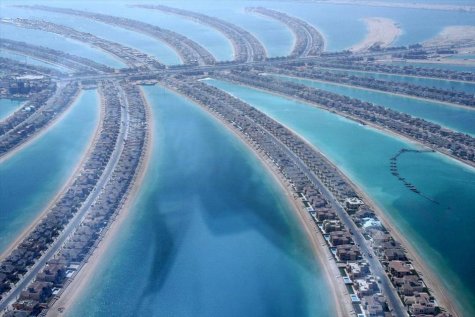 |
Dubai Marina is one particular area in Dubai offering a
whole host of beach-fronted developments with private
beaches, beach clubs, 700 berths and direct waterfront
access for sailing, yachting and fun. Jumeirah Beach
Residence overlooking the Arabian Gulf is an example of the
residential developments located on the Marina that offer
property owners living in Dubai a fantastic beach resort way
of life year round.
|
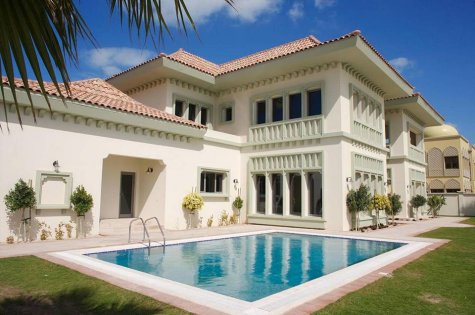 |
Jumeirah Beach Residence development
comprises 36 residential towers with a range of apartment
types to suit budgetary and lifestyle requirements together
with a series of beach clubs for the exclusive use of
residents. The Jumeirah Beach website highlights the fact
that the development is being built on one of Dubai's last
remaining beachfronts and as a direct result of that fact,
interest in the apartments for sale has been intense.
|
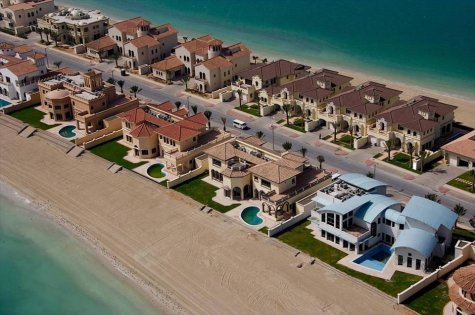 |
The demand for waterfront and beachfront
properties in Dubai is now so intense that the conception of
the Palm Islands back in 2002 could not have come at a
timelier juncture! When they are finally finished The Palms
will be the three largest manmade islands in the whole world
and they are now commonly referred to as the eighth wonder
of the modern world! Every single villa being constructed on
The Palm, Dubai will have its own private beach as well as a
swimming pool and these villas were changing hands for
incredible sums of money even before the land reclamation
and infrastructure phases of the build process were
complete!
|
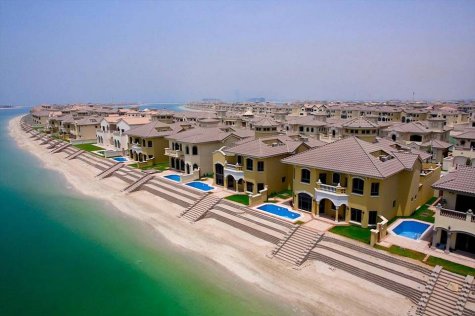 |
The final development in our look at the
beachfront properties in Dubai available for sale currently
is Ocean Heights; a 50 storey magnificent condominium tower
situated on the edge of the Dubai Marina development and
offering residents access to pure white sandy beaches and
some of the best views in Dubai. Each of the 352
condominiums for sale in the Ocean Heights tower have been
individually designed with luxury in mind and they offer
residents some of the most attractive high rise dwellings
currently for sale in Dubai.
|
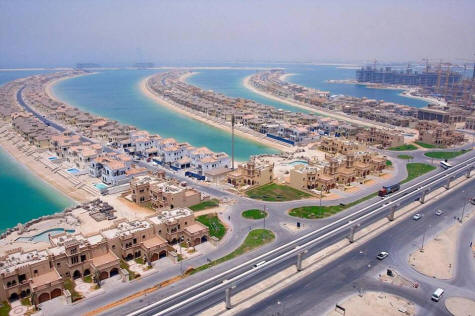
|
So, whether you want natural beaches or
manmade beaches, an apartment or a villa you can rest
assured that the architects and city designers in Dubai will
have created something to suit your tastes and budget, just
have a look around at the latest developments to buy off
plan or even examine the active resale market and buy into
possibly the most exciting waterfront city in the world.
|
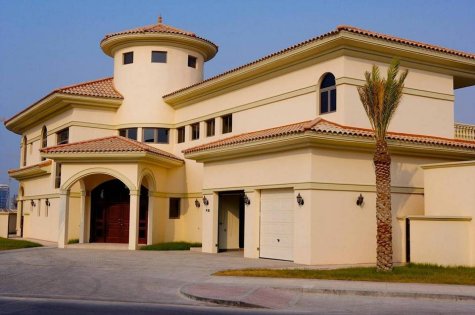 |
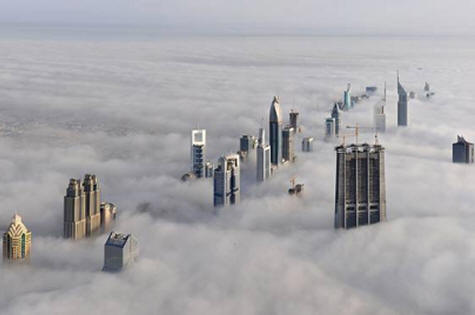 |
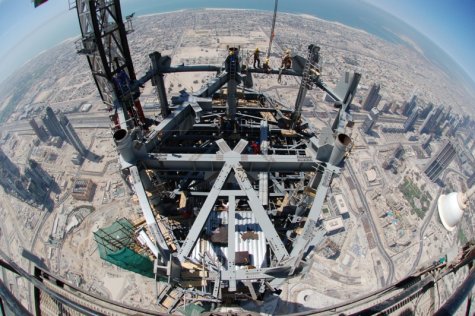 |
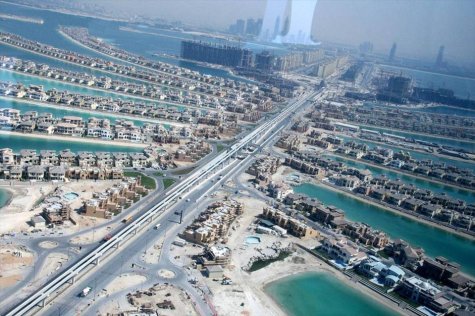 |
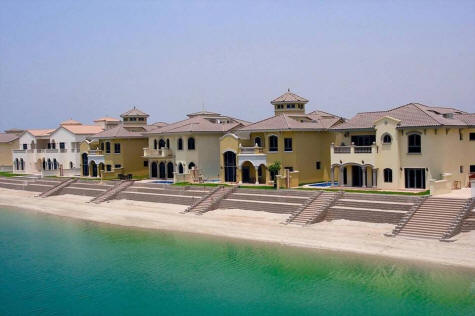 |
Laid-Off
Foreigners Flee as Dubai Spirals Down
By ROBERT F. WORTH
Published: February 11, 2009
DUBAI, United Arab Emirates
Sofia, a 34-year-old Frenchwoman, moved here
a year ago to take a job in advertising, so
confident about Dubai’s fast-growing economy that
she bought an apartment for almost $300,000 with a
15-year mortgage.
Now, like many of the foreign workers who
make up 90 percent of the population here, she has
been laid off and faces the prospect of being forced
to leave this Persian Gulf city — or worse.
“I’m really scared of what could happen,
because I bought property here,” said Sofia, who
asked that her last name be withheld because she is
still hunting for a new job. “If I can’t pay it off,
I was told I could end up in debtors’ prison.”
With Dubai’s economy in free fall, newspapers
have reported that more than 3,000 cars sit
abandoned in the parking lot at the Dubai Airport,
left by fleeing, debt-ridden foreigners (who could
in fact be imprisoned if they failed to pay their
bills). Some are said to have maxed-out credit cards
inside and notes of apology taped to the windshield.
The government says the real number
of abandoned vehicles is
much lower. But the stories contain at least a grain
of truth: jobless people here lose their work visas
and then must leave the country within a month. That
in turn reduces spending, creates housing vacancies
and lowers real estate prices, in a downward spiral
that has left parts of Dubai — once hailed as
the economic superpower of the Middle East —
looking like a ghost town.
|
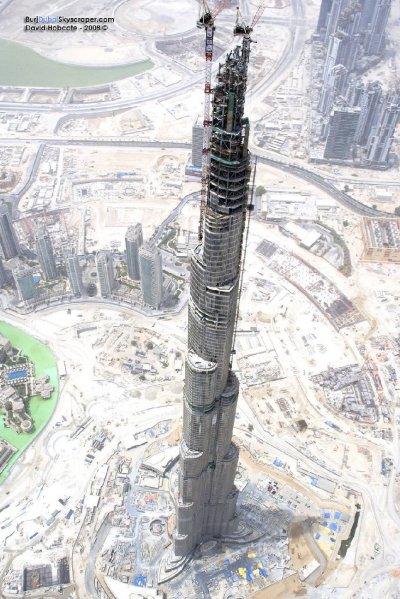 |
No one knows how bad things have
become, though it is clear that tens of thousands have left,
real estate prices have crashed and scores of Dubai’s major
construction projects have been suspended or canceled. But
with the government unwilling to provide data, rumors are
bound to flourish, damaging confidence and further
undermining the economy.
Instead of moving toward greater transparency, the
emirates seem to be moving in the other direction. A new
draft media law would make it a crime to damage the
country’s reputation or economy, punishable by fines of up
to 1 million dirhams (about $272,000). Some say it is
already having a chilling effect on reporting about the
crisis.
Last month, local newspapers reported that Dubai was
canceling 1,500 work visas every day, citing unnamed
government officials. Asked about the number, Humaid bin
Dimas, a spokesman for Dubai’s Labor Ministry, said he would
not confirm or deny it and refused to comment further. Some
say the true figure is much higher.
“At the moment there is a readiness to believe the worst,”
said Simon Williams, HSBC bank’s chief economist in Dubai.
“And the limits on data make it difficult to counter the
rumors.”
Some things are clear: real estate prices, which rose
dramatically during Dubai’s six-year boom, have dropped 30
percent or more over the past two or three months in some
parts of the city. Last week, Moody’s Investor’s Service
announced that it might downgrade its ratings on six of
Dubai’s most prominent state-owned companies, citing a
deterioration in the economic outlook.
Nor is anyone buying new vehicles. Lack of
credit and a glut of cars on the market are cutting sales.
So many used luxury cars are for sale , they are sometimes
sold for 40 percent less than the asking price two months
ago, car dealers say. Dubai’s
roads, usually thick with traffic at this time of year, are
now mostly clear.
Some analysts say the crisis is likely to have long-lasting
effects on the seven-member emirates federation, where Dubai
has long played rebellious younger brother to oil-rich and
more conservative Abu Dhabi. Dubai officials, swallowing
their pride, have made clear that they would be open to a
bailout, but so far Abu Dhabi has offered assistance only to
its own banks.
“Why is Abu Dhabi allowing its neighbor to have its
international reputation trashed, when it could bail out
Dubai’s banks and restore confidence?” said Christopher M.
Davidson, who predicted the current crisis in “Dubai: The
Vulnerability of Success,” a book published last year.
“Perhaps the plan is to centralize the U.A.E.” under Abu
Dhabi’s control, he mused, in a move that would sharply
curtail Dubai’s independence and perhaps change its
signature freewheeling style.
For many foreigners, Dubai had seemed at first to be a
refuge, relatively insulated from the panic that began
hitting the rest of the world last autumn. The Persian Gulf
is cushioned by vast oil and gas wealth, and some who lost
jobs in New York and London began applying here.
But Dubai, unlike Abu Dhabi or nearby Qatar and Saudi
Arabia, does not have its own oil, and had built its
reputation on real estate, finance and tourism. Now,
many expatriates here talk about Dubai as though it were a
con game all along. Lurid rumors spread quickly: the Palm
Jumeira, an artificial island that is one of this city’s
trademark developments, is said to be sinking, and when you
turn the faucets in the hotels built atop it, only
cockroaches come out.
“Is it going to get better? They tell you that, but I don’t
know what to believe anymore,” said Sofia, who still hopes
to find a job before her time runs out. “People are really
panicking quickly.”
Hamza Thiab, a 27-year-old Iraqi who moved here from Baghdad
in 2005, lost his job with an engineering firm six weeks
ago. He has until the end of February to find a job, or he
must leave. “I’ve been looking for a new job for three
months, and I’ve only had two interviews,” he said. “Before,
you used to open up the papers here and see dozens of jobs.
The minimum for a civil engineer with four years’ experience
used to be 15,000 dirhams a month. Now, the maximum you’ll
get is 8,000,” or about $2,000.
Mr. Thiab was sitting in a Costa Coffee Shop in the Ibn
Battuta mall, where most of the customers seemed to be
single men sitting alone, dolefully drinking coffee at
midday. If he fails to find a job, he will have to go to
Jordan, where he has family members — Iraq is still too
dangerous, he says — though the situation is no better
there. Before that, he will have to borrow money from his
father to pay off the more than $12,000 he still owes on a
bank loan for his Honda Civic. Iraqi friends bought fancier
cars and are now, with no job, struggling to sell them.
“Before, so many of us were living a good life here,” Mr.
Thiab said. “Now we cannot pay our loans. We are all just
sleeping, smoking, drinking coffee and having headaches
because of the situation.”
|
2010 UPDATE ON DUBAI
-----Original
Message-----
From: Ben L
Sent: Thursday, March 25, 2010 3:42 AM
To:
Rick Archer
Subject: Dubai
BTW, currently reading your page on Dubai, which I've had
the good fortune to visit twice over the past couple years.
I was lucky enough to get some "inside" tours, because I
knew a guy who worked at Nakheel, the company building the
Palm Islands and the World islands.
RICK ARCHER'S
RESPONSE:
I have read
that Dubai has fallen on hard times. Were the economic
problems obvious or are they hidden?
Have they had any luck selling the islands on the "World"
project?
Rick Archer
SSQQ Dance Studio
BEN'S RESPONSE
Hi Rick,
Yes,
Dubai has certainly fell on hard times. It was huge news
around the December timeframe, that Dubai World, a
government owned holding company that was financing a lot of
the boom was more or less bankrupt. It sent shockwaves
through world financial industries. I have two friends who
work there, and here is some commentary from one of them, as
he lived through it all, from boom to bust:
http://www.nsxprime.com/forums/showpost.php?p=1250992&postcount=4
http://www.nsxprime.com/forums/showpost.php?p=1251090&postcount=11
A lot of
things have changed since your article was written. Just
off the top of my head, here's what I can think of from my
visits there as I go through your
article:
1. Dubailand
missed it's 2009 completion, and now the 1st phase alone
isn't scheduled to be completed until 2012
2. Burj Dubai
missed it's 2008 completion, and didn't open until January
of this year.
3. Ski Dubai
is finished. I skied there in 11/2007. The single L-shaped
run can be finished in about 20-30 seconds by an experiences
skiier. I usually ski up at Lake Tahoe, so this run was
kind of underwhelming, but just the fact that it exists in
the middle of the desert heat is amazing in itself. They
provide the ski clothes for you, and underneath that, I was
dressed in summer clothes!
4. The World
islands are sitting there, and construction has been halted
as of mid 2009. There is only one completed island, which
was given to the Sheikh. I was fortunate enough to take a
private boat tour of the World Islands in 3/2009, they look
pretty sad in their unfinished state, and will remain that
way for the foreseeable future.
5. Dubai never
had much oil to begin with. The lion's share of the oil is
in neighboring Abu Dhabi. Today, oil only accounts for 6%
of Dubai's revenue.
A lot of
revenue comes from the Jebel Ali port, which is a tax free
economic zone. Dubai's government has worked hard to build
up other non-oil related industries, to varying degrees of
success.
6. Native
Emiratis only make up about 15% of the population. Most
white collar workers are from Australia, Canada, USA, and
Europe. Most blue collar workers from from the Philippines,
Pakistan, India.
7. The speed
at which things were constructed is they worked hard to get
it up as quickly as possible, often times sacrificing
overall quality in the process. Even expensive high rise
apartments and luxury villas have reported having issues
related to the construction quality, sometimes just 2 years
after completion. In fact, the road system in Dubai has no
provisions for drainage, so after it rains (albeit rarely),
the roads are usually flooded.
8. Property
values as well as rents have fallen considerably, as many
people have been laid off, and left the country. There are
now many vacant and/or unsold units in areas like the Palm
Jumeirah, and the Marina.
9. The Dubai
Marina is now complete. I stayed there on both of my
visits, and was fortunate enough to take a boat tour through
the man made canal as well.
It still in
the final phases of construction when I was there in
11/2007, but by my second visit in 3/2009, it was completed.
10. The
Jumeirah Beach Residences is now complete. It's quite nice,
and there's a row of restaurants and shops that run along
the beachfront.
11. Most of
the residential portions of the Palm Jumeirah are now
completed. I was fortunate enough to tour them during
construction in 11/2007. Now, they are off-limits except to
residents.
12. As far as
I know, the rotating skyscraper and underwater hotel are
indefinitely shelved, I hear no mention being made of them.
13. The Burj
Al Arab hotel, while indisputably nice, I felt was a bit
over the top, excess, just for the sake of excess. I read
that the entrance fee was $150, but you can also make a
reservation to eat at one of the restaurants, in which case
the fee is waived, and you can stay as long as you wish.
The Jumeirah Beach Hotel, is actually supposed to be just as
nice as the Burj, albeit, not as famous.
14. The
Sultan's Palace on your page, as people have pointed out, is
actually the Emirates Palace Hotel in Abu Dhabi, which you
actually don't have to pay to go see.
The silver
Audi photos do not look like they are from Dubai or Abu
Dhabi. The clothes they are wearing aren't the Emirati
style. There are subtle regional differences in the attire.
15. As far as
I know, no 2nd indoor ski facility is under construction.
16. The Dubai
Metro after numerous delays and cost overruns, had a soft
opening in 2009. Only one portion of one line is open, and
it isn't really useful, as it's not complete yet. It was
only opened because they set a hard in-service date.
17. The
Nakheel skyscraper that was supposed to be even taller than
the Burj Dubai (built by Emmar) has been cancelled.
18. The Rose
Tower, missed it's 2008 opening, and didn't open until end
of December 2009.
If you like, I
can send you some pictures.
Cheers,
Ben
from California
|
|